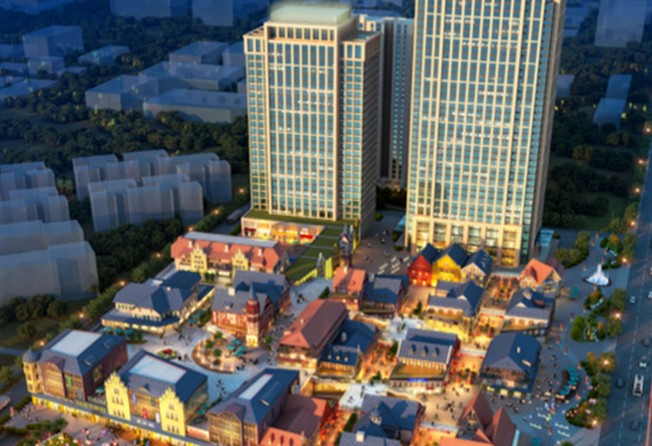German wholesaler Metro shifts to new store model in China as land prices rise
In a bid to stay competitive in a fast-changing market, the retailer is changing its approach to store ownership

Twenty years after opening its first wholesale store in Shanghai, German retail giant Metro Group has started what may be its largest-ever business transition in China.
The retailer has previously stuck rigidly to a policy of building and holding its own Metro Cash & Carry stores instead of renting from third-party landlords, a model that set it apart from competitors.
But in the face of surging land costs and changing consumer habits, the brand has decided to explore new business models in its largest Asian market.
In Wuhan, the capital of central China’s Hubei Province, Metro is trying to redevelop one of its stores into its first shopping complex.
“We are partly turning to asset-light from asset-heavy,” said Geoffrey Guo, expansion director and head of project development for China at Metro Jinjiang Cash & Carry, a joint venture set up with Shanghai-based Jinjiang Group.
According to Guo, the company has partnered with a local developer to jointly build the Wuhan project, and has transferred the property ownership to the developer.
The plan is to expand the existing outlet into a 167,000 square metre German-themed town, consisting of a mall, office buildings and apartments.
The complex will include a smaller cash and carry shop, and Metro will buy back the store ownership. Meanwhile, it will participate in operations at the complex and attempt to introduce German brands through tenant leasing.
“Some of our land used to be in very remote areas, but after a decade or two, it has become the city centre, so we need to negotiate with local governments and to change our plan,” Guo said.
Besides Wuhan, Guo said they are also considering redeveloping some of Metro’s stores in Shanghai and other cities into five-star hotels, office buildings or neighbourhood centres.
Having first arrived in China in 1995 after the government partially opened the retail sector, Metro has grown slowly compared to its peers, opening 86 stores in 58 cities across the country so far, about two thirds of them owned by the company. In comparison, US-based Wallmart has 423 stores in China.
The rise of e-commerce has made the traditional German retailer shift away from its rigid self-built stores policy toward renting more shops in the past few years to enable quicker expansion.
Metro’s sales in China climbed 17.4 per cent to 2.662 billion euros (HK$22 billion) in the year to September 2015. The figures for fiscal year 2015/16 are set to be disclosed in mid-December.
In response to a rapidly changing market, Metro launched its first two My Mart brand convenience stores in Shanghai earlier this year.
“The demand for supermarkets is not so strong in places like Shanghai where convenience stores are thriving,” Guo said.
My Mart offers Metro’s exclusive imported products, private label lines and fresh fruits, as well as about 100 ready-to-eat items. And Metro plans to roll out the concept to other cities in China through franchise.
While Guo said Metro’s focus will always be its wholesale stores, the company is now seeking to open more stores in western Chinese cities such as Xi’an and Zhengzhou.